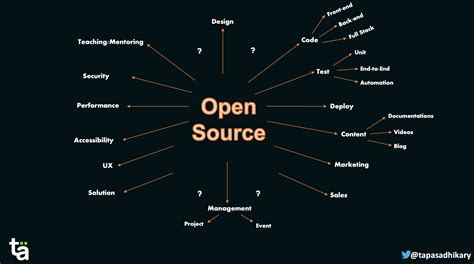Open-source software development is not merely a playground for seasoned coders but a multifaceted ecosystem where diverse contributions can significantly enhance project sustainability and functionality. The essence of contributing meaningfully lies not in the frequency or volume of contributions, but in their quality and relevance to the project. Understanding the nuances of a project you engage with is more critical than the mere act of submitting patches or features.
A common misconception is that one must be deeply versed in programming to contribute to open source projects. However, there are numerous ways to contribute that do not require advanced coding skills. For instance, project documentation, user interface improvements, and bug reporting are equally vital to the project’s health. These contributions ensure that the software remains accessible, usable, and bug-free, catering to a broader user base.
One poignant example of non-code contribution is seen in the efforts of users who dedicate time to improving the user interface and user experience of a software. This not only enhances the software’s aesthetic appeal but also its functionality, making it more intuitive for users. This type of contribution often requires a deep understanding of the user’s needs and a creative approach to solving interface problems, proving that technical contributions are not the only means of improving a project.
The role of a maintainer is another dimension often overlooked in discussions about open source contributions. Maintainers are crucial as they review contributions, guide project direction, and ensure the sustainability of the project. However, this role can lead to burnout due to the high demand and continuous effort required to manage community contributions and project development.
Encouraging meaningful contributions involves setting clear guidelines, providing feedback, and supporting new contributors in understanding the project’s core needs. This not only enhances the quality of contributions but also helps in building a dedicated community that feels invested in the project’s success. Open source projects significantly benefit from contributors who use the project themselves, as they bring a user’s perspective to the development process, ensuring that the software meets real-world needs.
The debate about the value of contributions also brings into focus the motivations behind contributing. While some contribute to gain experience or for personal recognition, the most beneficial contributions are those made out of a genuine interest in the project and its community. This aligns with the ethos of open source—collaboration for improvement and innovation, not simply for personal gain.
In conclusion, open source projects thrive on diverse contributions that extend beyond code. From improving documentation and user interfaces to managing community interactions and submitting bug reports, each contribution type plays a critical role. As such, it’s important for the community to value and encourage all forms of contributions, fostering an environment where anyone, regardless of their technical skill level, can contribute meaningfully and learn in the process.


Leave a Reply